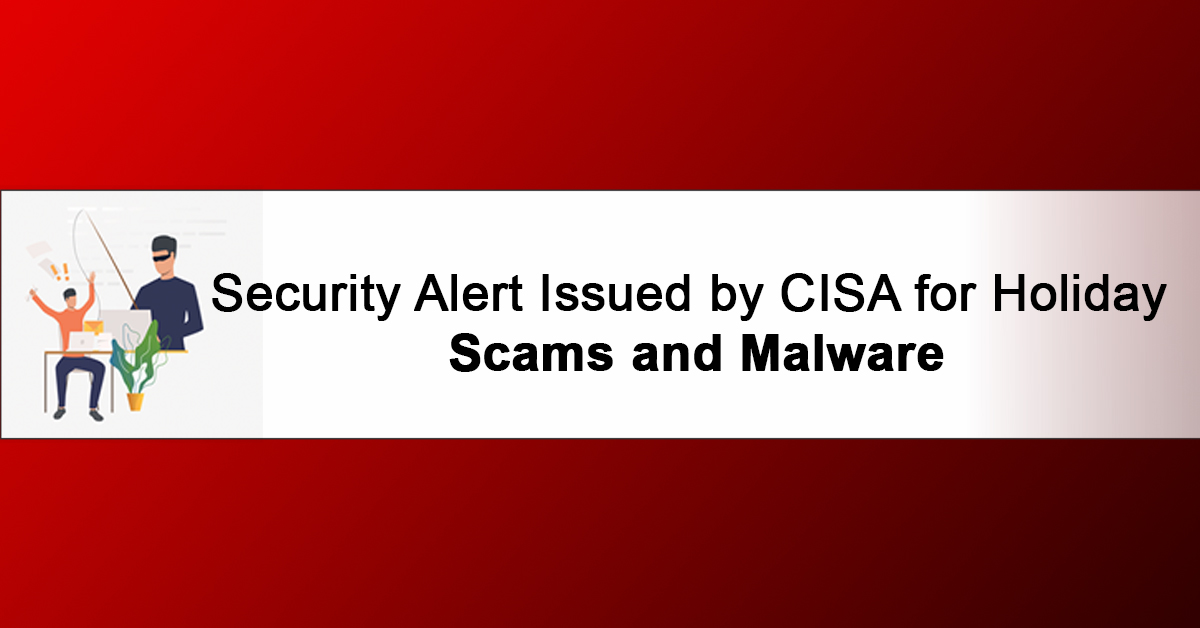The department of Homeland Security’s (DHS) and Cybersecurity and Infrastructure Security (CISA) asked U.S. citizens to be aware of scams and malicious cyber campaigns. Holidays are a busy season for cyber-attackers and scammers.
As this holiday season is near, the CISA encourages U.S. citizens to stay safe of potential holiday scams and malicious cyber campaigns, especially while browsing or shopping online, says CISA.
They also added cyber attackers have various methods to harm your security, like sending emails and ecards that contain malicious links or attachments infected with malware. They may also send spoofed emails and phony posts on a social network that may request support for deceitful charities or causes. These posts and emails could result in security breaches, identify theft, or financial loss.
Many government agencies from the U.K. and Australia have issued their own warnings about holiday cyber fraud at one point or another, same as FTC and DHS previously did in 2017 and 2018.
In the holiday season, scammers run seasonal campaigns that could result in security breaches or may lead to financial loss. For that CISA have encouraged users to follow the below action while browsing or shopping online:
Avoid to click on links in unsolicited emails and also be aware of
email attachments to avoid spoofing and phishing scams.
Use caution while browsing and shopping online.
Before you donate, check the charity’s authenticity.
Consumers have continuously been targeted by hackers who take the benefit of the holiday season to run themed scams via online advertisement, phishing emails, misleading sales calls, and event text messages.
Last year, the scam campaign was on delivering emails pretending to be Amazon order confirmations and targeted people who were shopping online for holiday gifts.
In this case, attackers attacked the victims with Emotet banking Trojan; it is a software that silently runs in the background and strokes logging details, stealing account credentials, and performing various other criminal activities on their computers.
There are new scams campaigns run by cyber-attackers in every holiday, and it is quite scary to use the internet on holidays. Then how to play safely on the internet?
How to protect yourself from scammers?
CISA always provides a list of measures you can take to defend against cyber-attack on holiday shopping, phishing, and malware scams. The best advice is still to be careful while opening attachments or clicking links in unsolicited emails or messages.
Consumers are also warned to be cautious while browsing and shopping online on holidays as hackers and fraudsters are lively active. They can attack them by intercepting insecure transactions, by targeting unpatched systems and designing cloned sites and using email scam to infect their financial and personal information.
What if you believe you were a victim of holiday scams and malicious cyber campaigns? Consider the following steps:
1) File your complaint with the FBI’s Internet Crime Complaint Center (IC3).
2) Report cyber-attack to the police and file a report with the Federal Trade Commission.
3) Immediately close your accounts that have been compromised with the help of your financial institution.
4) Change your passwords that you might have revealed and do not use that password in the future. Avoid using the same passwords on multiple sites.
If you are a small or medium-sized business and worried about your business IT or don’t want to be the victim of any cyber-attacks, contact Fusion Factor for your business cybersecurity needs, and this holiday is cyber safe.
For more details on cybersecurity, contact us at (760) 940 4200.


